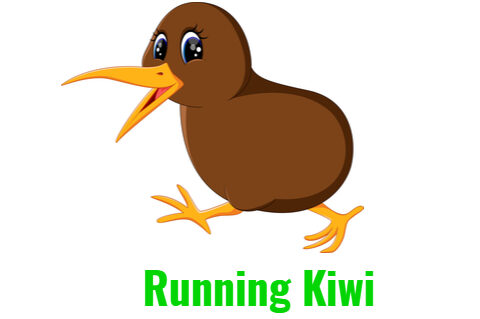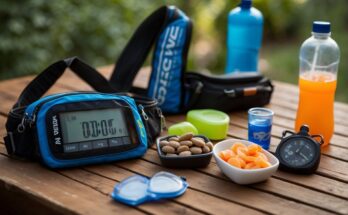Ultra running is an activity that requires a lot of physical endurance and mental toughness. Participants in ultra running events typically cover distances of 50 kilometers or more, often in challenging terrain and weather conditions. In order to perform at their best, ultra runners need to pay close attention to their nutrition and hydration.
When it comes to ultra running nutrition, there are several key factors to consider. First and foremost, it’s important for runners to consume enough calories to fuel their bodies for the long haul. This means eating a balanced diet that includes plenty of carbohydrates, protein, and healthy fats. Additionally, runners need to stay hydrated throughout their races, which may require consuming electrolyte-rich fluids and foods.
Another important consideration for ultra runners is timing their meals and snacks properly. Eating too much or too little at the wrong time can lead to digestive issues, energy crashes, and other problems. Therefore, many ultra runners follow specific nutrition plans that are tailored to their individual needs and preferences. By doing so, they can help ensure that they have the energy and stamina they need to complete their races successfully.
The Basics of Ultra Running Nutrition
Ultra running is a grueling endurance sport that requires a lot of energy and stamina. To perform at their best, ultra runners need to pay close attention to their nutrition. In this section, we will cover the basics of ultra running nutrition, including macronutrients, micronutrients, and hydration.
Macronutrients
Macronutrients are the nutrients that provide energy to the body. They include carbohydrates, protein, and fat. For ultra runners, carbohydrates are the most important macronutrient. Carbohydrates provide energy to the muscles and brain, and they are the primary fuel source during exercise. Ultra runners should aim to consume 60-70% of their total calories from carbohydrates.
Protein is also important for ultra runners. Protein helps repair and rebuild muscle tissue, which can become damaged during long runs. Ultra runners should aim to consume 15-20% of their total calories from protein.
Fat is another important macronutrient for ultra runners. Fat provides energy to the body during low-intensity exercise and helps regulate hormones. Ultra runners should aim to consume 20-25% of their total calories from fat.
Micronutrients
Micronutrients are the nutrients that the body needs in smaller amounts. They include vitamins and minerals. Ultra runners should aim to consume a variety of fruits and vegetables to ensure they are getting all the micronutrients they need. Some key micronutrients for ultra runners include:
- Iron – helps transport oxygen to the muscles
- Calcium – important for bone health
- Vitamin D – important for bone health and immune function
- Magnesium – important for muscle and nerve function
Hydration
Hydration is critical for ultra runners. Dehydration can lead to fatigue, cramping, and other issues. Ultra runners should aim to drink 16-20 ounces of fluid every hour during exercise. Water is a good choice for shorter runs, but for longer runs, ultra runners may need to consume a sports drink to replace electrolytes lost through sweat.
In addition to drinking fluids, ultra runners should also aim to consume foods that are high in water content, such as fruits and vegetables.
Pre-Race Nutrition
Proper nutrition is a crucial part of any ultra runner’s preparation for a race. Pre-race nutrition can make a significant difference in an athlete’s performance. Here are some guidelines for pre-race nutrition:
Carb Loading
Carbohydrates are a critical source of energy for endurance athletes. Carb loading is a strategy used by many ultra runners to maximize their glycogen stores, which can help delay fatigue during the race. Two to three days before the race, athletes should aim to consume 7-10 grams of carbohydrates per kilogram of body weight. For example, a 68-kilogram athlete should consume 476-680 grams of carbohydrates per day. It’s essential to choose complex carbohydrates like whole grains, fruits, and vegetables, which provide a sustained release of energy over time.
Foods to Avoid
It’s equally important to avoid certain foods before a race. High-fat foods are challenging to digest and can cause gastrointestinal distress during the race. Similarly, high-fiber foods can cause bloating and discomfort. Ultra runners should avoid consuming alcohol and caffeine before the race, as they can cause dehydration and interfere with sleep. It’s also essential to avoid trying new foods before the race, as they can cause unexpected reactions.
By following these guidelines, ultra runners can ensure that they are adequately fueled for the race ahead. A well-planned pre-race nutrition strategy can help athletes perform their best and achieve their goals.
During Race Nutrition
During an ultra race, proper nutrition is crucial to maintain energy levels and prevent fatigue. Here are some key considerations for during race nutrition:
Energy Gels
Energy gels are a popular choice for ultra runners due to their convenience and quick absorption. They typically contain a blend of carbohydrates, electrolytes, and sometimes caffeine. It’s important to experiment with different brands and flavors during training to find what works best for the individual. Some runners prefer to take a gel every 30-45 minutes, while others may opt for a more frequent or less frequent schedule.
Electrolyte Replacement
Electrolyte replacement is important during an ultra race to maintain proper hydration and prevent cramping. Many sports nutrition products contain electrolytes, but some runners may prefer to use salt tablets or other natural sources of electrolytes. It’s important to monitor sodium intake and adjust as needed based on sweat rate and individual preferences.
Real Food vs. Sports Nutrition Products
Some ultra runners prefer to rely on real food during a race, while others prefer to stick with sports nutrition products. It’s important to find what works best for the individual and experiment during training. Some common real food options include bananas, peanut butter and jelly sandwiches, and boiled potatoes. Sports nutrition products like chews, bars, and drinks can also be effective, but it’s important to read labels and avoid products with excessive sugar or artificial ingredients.
Overall, during race nutrition is a key component of a successful ultra race. It’s important to experiment with different products and strategies during training to find what works best for the individual.
Post-Race Nutrition
Recovery Nutrition
After completing an ultra marathon, the body is in a state of fatigue and requires proper nutrition to recover. Consuming foods that are high in protein and carbohydrates can help repair damaged muscle tissue and replenish glycogen stores in the body. Some examples of recovery foods include:
- Grilled chicken with sweet potato and green beans
- Salmon with quinoa and roasted vegetables
- Whole grain pasta with lean ground beef and tomato sauce
It is important to consume these foods within 30 minutes to an hour after finishing the race to maximize recovery benefits.
Rehydration
During an ultra marathon, the body loses a significant amount of fluids through sweat. Proper rehydration is crucial to prevent dehydration and aid in recovery. Drinking water and sports drinks that contain electrolytes can help replenish fluids and minerals lost during the race. It is recommended to drink at least 16-20 ounces of fluid for every pound of body weight lost during the race.
In addition to fluids, consuming foods that are high in water content can also aid in rehydration. Some examples of high-water content foods include:
| Food | Water Content |
|---|---|
| Watermelon | 92% |
| Cucumber | 96% |
| Strawberries | 91% |
It is important to continue rehydrating for several hours after the race to fully replenish fluids lost during the ultra marathon.
Supplements for Ultra Runners
Supplements can be a useful addition to an ultra runner’s nutrition plan. However, it is important to remember that supplements should not replace a balanced diet. Here are some supplements that may be beneficial for ultra runners:
Protein Powders
Protein powders can be a convenient way to increase protein intake, which is important for muscle recovery and growth. Ultra runners may benefit from protein powders because they often need more protein than the average person due to the high demands of their training.
When choosing a protein powder, it is important to look for one that is easily digestible and contains all essential amino acids. Some popular options include whey protein, casein protein, and plant-based protein powders such as pea protein or soy protein.
Branched-Chain Amino Acids (BCAAs)
BCAAs are a type of amino acid that are important for muscle recovery and growth. They may also help reduce muscle soreness and fatigue during exercise. Ultra runners may benefit from BCAAs because they can help preserve muscle mass and improve recovery.
BCAAs can be found in many protein-rich foods, but supplements can be a convenient way to ensure adequate intake. BCAAs are often sold in powder or capsule form and can be taken before, during, or after exercise.
Multivitamins
A multivitamin can be a useful way to ensure that an ultra runner is getting all of the essential vitamins and minerals they need. Ultra runners may have higher nutrient needs due to the demands of their training, so a multivitamin can help fill any nutrient gaps.
When choosing a multivitamin, it is important to look for one that contains all essential vitamins and minerals. It is also important to avoid taking more than the recommended daily amount, as some vitamins and minerals can be harmful in high doses.
Conclusion
Ultra running can be a grueling and challenging sport that requires careful planning and preparation, especially when it comes to nutrition. The right fuel can make all the difference in an athlete’s performance, and it’s important to find what works best for each individual.
Throughout this article, various nutrition strategies have been discussed, including the importance of carbohydrates, protein, and fat, as well as hydration and electrolyte balance. It’s clear that there is no one-size-fits-all approach to ultra running nutrition, and athletes must experiment and find what works best for them.
Some key takeaways from this article include the importance of fueling before, during, and after a race or training run, the need for a balanced diet that includes a variety of nutrient-dense foods, and the role of supplements in supporting an athlete’s nutritional needs.
It’s also important to note that nutrition is just one piece of the puzzle when it comes to ultra running success. Proper training, rest, and recovery are all crucial components that work together to help an athlete achieve their goals.
Ultimately, the key to successful ultra running nutrition is finding a plan that works for the individual athlete and sticking to it consistently. With the right fuel and a solid training plan, anyone can take on the challenge of ultra running and come out on top.




